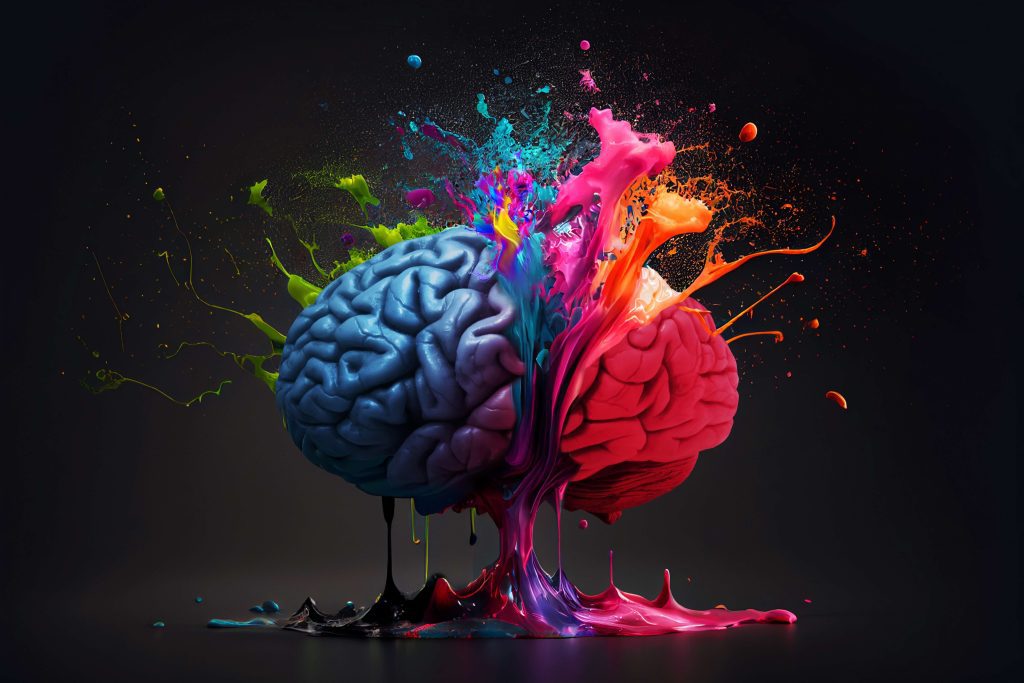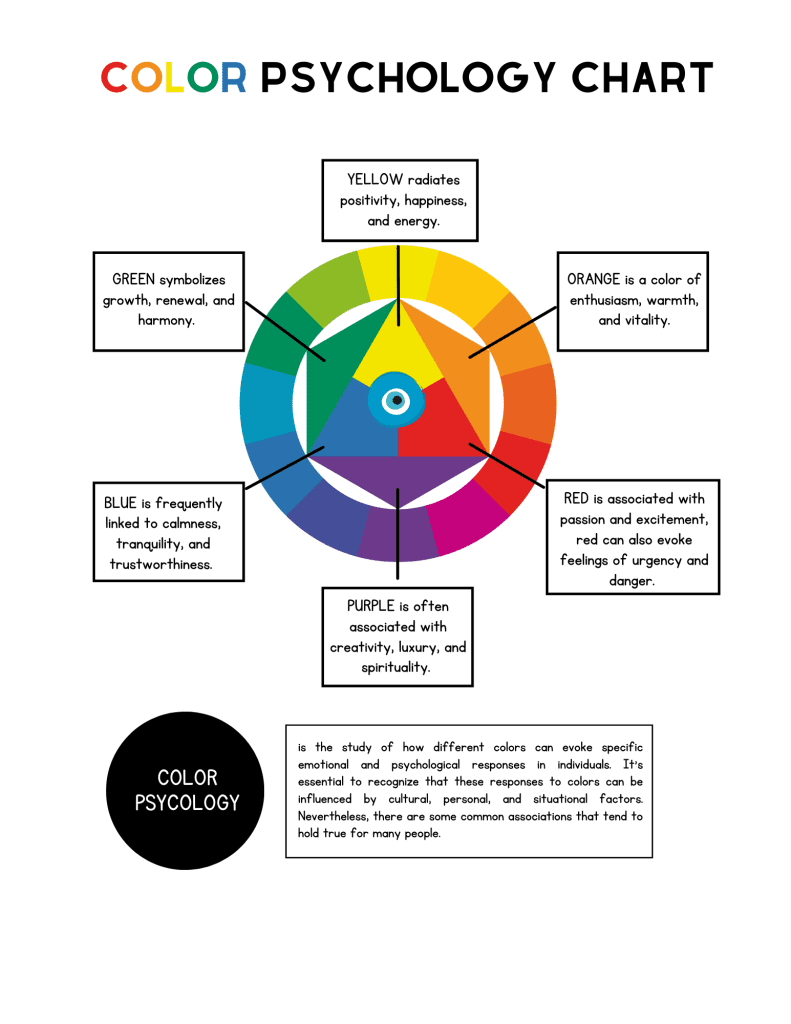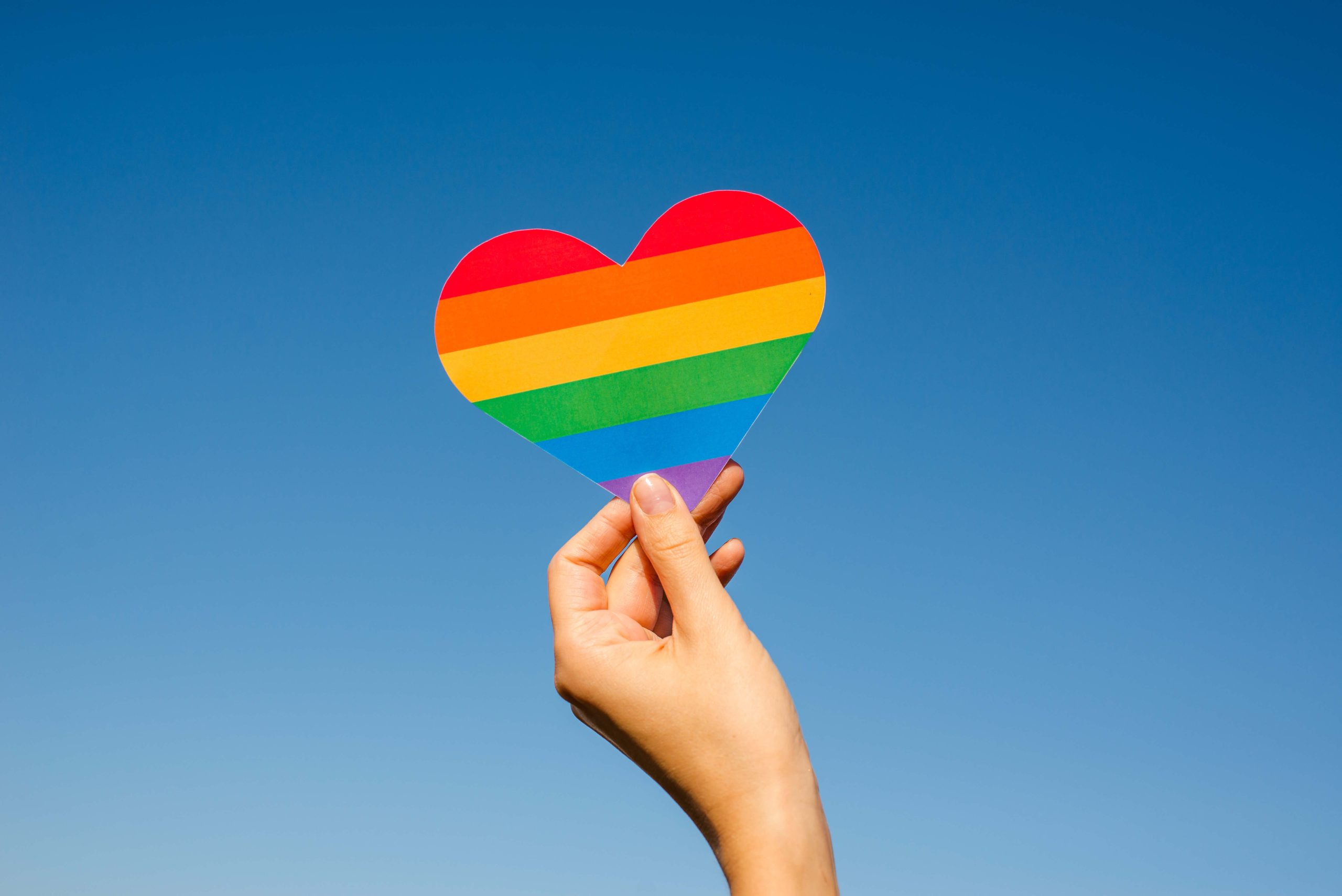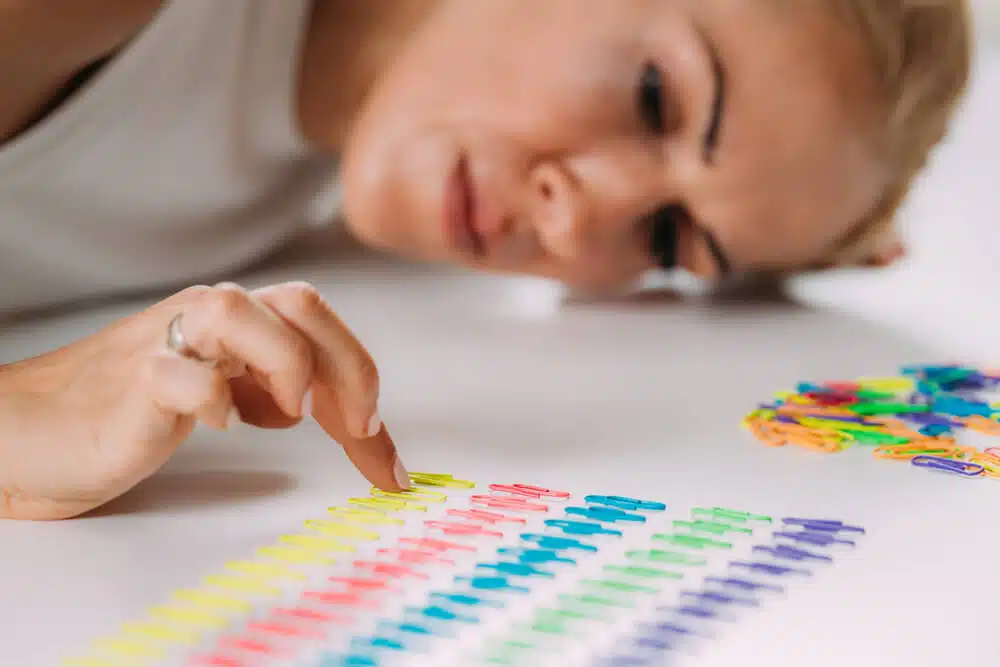The Psychology of Color: Impacting Emotions and Well-Being
Colors are all around us, shaping our perceptions, influencing our emotions, and even impacting our well-being. The study of how colors affect human behavior and feelings is known as color psychology. It’s a fascinating field that explores the powerful connection between color and our mental and emotional states. In this article, we’ll delve into the intriguing world of color psychology and how it can play a significant role in enhancing our overall well-being.

Understanding Color Psychology
Color psychology is the study of how different colors can evoke specific emotional and psychological responses in individuals. It’s essential to recognize that these responses to colors can be influenced by cultural, personal, and situational factors. Nevertheless, there are some common associations that tend to hold true for many people. Let’s explore a broader range of colors and their emotional impact:
- Red: Often associated with passion and excitement, red can also evoke feelings of urgency and danger. It’s a color that can stimulate both energy and anxiety.
- Blue: Blue is frequently linked to calmness, tranquility, and trustworthiness. It’s a color that can help reduce stress and promote relaxation.
- Green: Green symbolizes growth, renewal, and harmony. It can create a sense of balance and connection with nature.
- Yellow: Yellow radiates positivity, happiness, and energy. It’s a color that can uplift spirits and encourage optimism.
- Purple: Purple is often associated with creativity, luxury, and spirituality. It can stimulate imagination and a sense of inner peace.
- Orange: Orange is a color of enthusiasm, warmth, and vitality. It can spark creativity and social interaction.
- Pink: Pink is gentle and nurturing, often linked to feelings of love, compassion, and sensitivity. It’s a color that can soothe and comfort.
- Brown: Brown signifies stability, reliability, and comfort. It can evoke a sense of security and grounding.

Color Psychology and Well-Being
So, how does color psychology relate to our well-being? The connection is profound and multifaceted:
1. Influence on Emotions
Colors can have a direct impact on our emotional state. The right color choices in our surroundings can help evoke positive emotions and reduce negative ones. For example, a calming blue in a therapeutic environment can soothe anxiety and create a sense of peace, while a vibrant orange can foster energy and creativity.
2. Enhancement of Environments
In various settings, including homes, workplaces, and healthcare facilities, the choice of colors can transform the atmosphere. Warm and inviting colors can make spaces feel cozier and more welcoming, contributing to our sense of comfort and well-being.
3. Therapeutic Applications
Color therapy, also known as chromotherapy, is a complementary therapeutic approach that uses colors to promote healing and balance in individuals. It’s often used in conjunction with other forms of therapy to address a wide range of physical and mental health issues.
4. Personal Expression
Our personal color preferences can reveal a lot about our personality and emotional needs. Some individuals are naturally drawn to certain colors because those colors resonate with their inner emotions and well-being.
Incorporating Color Psychology into Daily Life
Here are some practical ways to incorporate color psychology into your daily life to enhance your well-being:
- Home Decor: Choose colors for your home that align with the atmosphere you want to create. For relaxation, opt for calming blues and greens in your bedroom. For energy and creativity, consider adding pops of vibrant colors like orange and purple in your workspace.
- Wardrobe Choices: Pay attention to the colors you wear. Dressing in colors that make you feel confident and comfortable can positively impact your mood. Experiment with different shades to match your desired emotional state.
- Mindful Color Choices: Be mindful of color choices in your daily surroundings, from the paint on your walls to the artwork you display. Consider the emotional and psychological effects these colors may have on your well-being.
- Colorful Self-Expression: Use color as a form of self-expression. Whether through art, fashion, or personal spaces, let your color choices reflect your unique personality and emotions.
Conclusion
The psychology of color is a captivating field that illustrates the profound impact colors have on our emotions and well-being. By understanding the principles of color psychology and making conscious color choices in our surroundings and personal expression, we can harness the power of colors to enhance our overall mental and emotional health. Whether you seek tranquility, positivity, creativity, or a sense of security, the world of color is a palette waiting for you to explore and use in your journey to well-being.


In conclusion, the strategic use of color psychology at LifeScape Recovery serves as a vital element in our mission to promote the well-being, healing, and empowerment of individuals seeking recovery from mental health challenges and addiction. By incorporating the psychology of colors into our therapeutic spaces, we provide individuals with a healing sanctuary that supports emotional and psychological well-being. Ultimately, this harmonious union of color and recovery fosters empowerment and well-being for all those entrusted to our care.
Published: November 07, 2023
Last Updated: November 07, 2023

Published: January 26, 2026
OCD vs. Autism: Understanding the Differences
Obsessive-compulsive disorder (OCD) and autism spectrum disorder (ASD) are often confused with one another. Both can involve repetitive behaviors, rigid routines, sensory sensitivities, and distress when things feel “off.” From the outside, the overlap can look striking. But in clinical treatment, the why behind those behaviors matters just as much as the behaviors themselves. At […]
Read more
Published: January 15, 2026
Obsessive-Compulsive Personality Disorder (OCPD)
People living with Obsessive-Compulsive Personality Disorder or OCPD often don’t see themselves as struggling with a mental health condition. They see themselves as responsible. Disciplined. Reliable. The person who holds everything together when others fall apart. But beneath that structure, many feel chronically tense, emotionally restricted, and exhausted by the pressure to do everything “the […]
Read more
Published: December 15, 2025
Why Mental Health & Addiction Spike During the Holiday Season?
The holiday season is often described as a time of joy, connection, and celebration. Yet for many individuals, it is also a period marked by increased emotional distress, worsening mental health symptoms, and a higher risk of substance use and relapse. Research consistently shows that rates of anxiety, depression, and addictive behaviors rise during late […]
Read more
